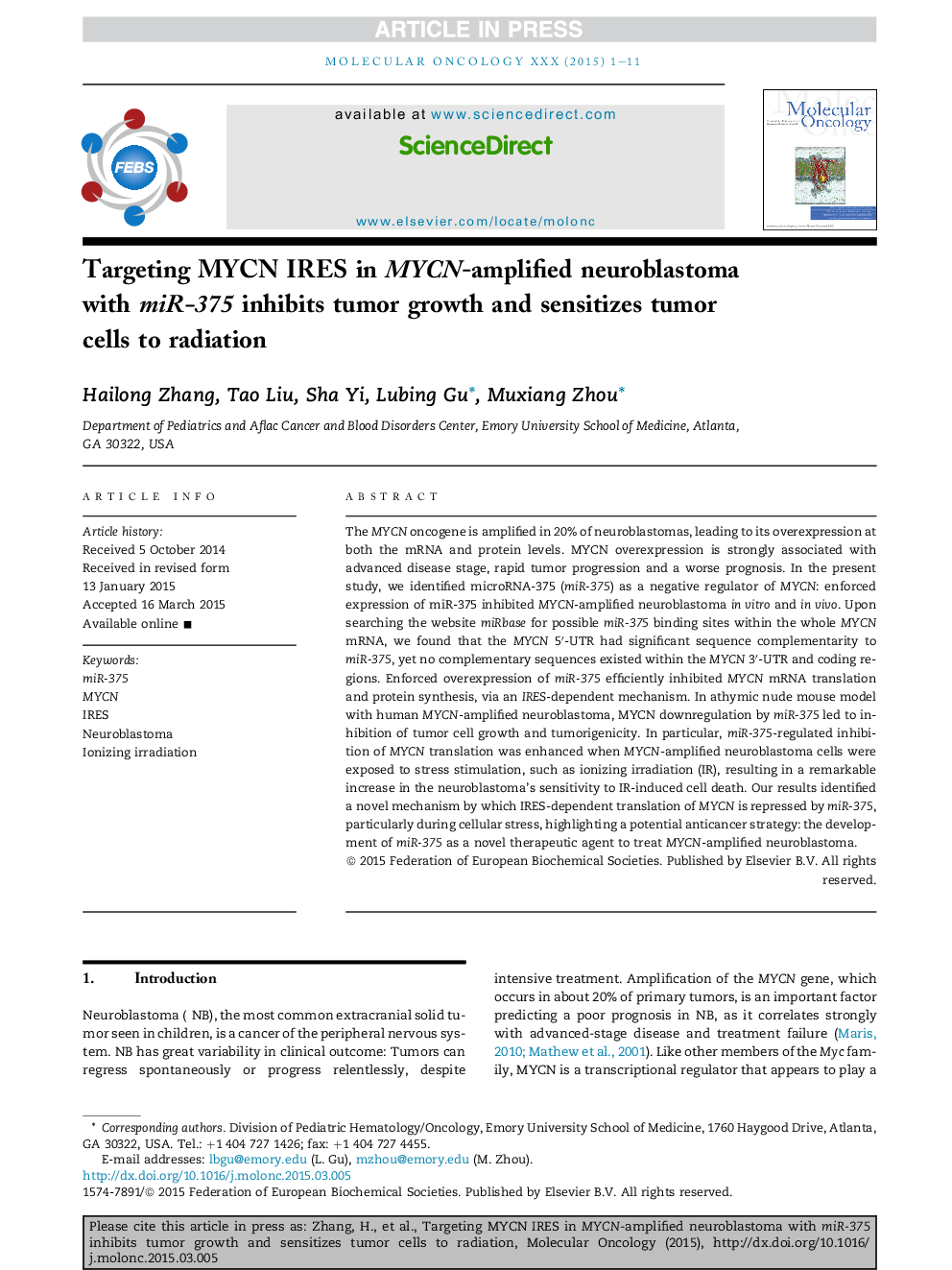| Article ID | Journal | Published Year | Pages | File Type |
|---|---|---|---|---|
| 10914651 | Molecular Oncology | 2015 | 11 Pages |
Abstract
The MYCN oncogene is amplified in 20% of neuroblastomas, leading to its overexpression at both the mRNA and protein levels. MYCN overexpression is strongly associated with advanced disease stage, rapid tumor progression and a worse prognosis. In the present study, we identified microRNA-375 (miR-375) as a negative regulator of MYCN: enforced expression of miR-375 inhibited MYCN-amplified neuroblastoma in vitro and in vivo. Upon searching the website miRbase for possible miR-375 binding sites within the whole MYCN mRNA, we found that the MYCN 5â²-UTR had significant sequence complementarity to miR-375, yet no complementary sequences existed within the MYCN 3â²-UTR and coding regions. Enforced overexpression of miR-375 efficiently inhibited MYCN mRNA translation and protein synthesis, via an IRES-dependent mechanism. In athymic nude mouse model with human MYCN-amplified neuroblastoma, MYCN downregulation by miR-375 led to inhibition of tumor cell growth and tumorigenicity. In particular, miR-375-regulated inhibition of MYCN translation was enhanced when MYCN-amplified neuroblastoma cells were exposed to stress stimulation, such as ionizing irradiation (IR), resulting in a remarkable increase in the neuroblastoma's sensitivity to IR-induced cell death. Our results identified a novel mechanism by which IRES-dependent translation of MYCN is repressed by miR-375, particularly during cellular stress, highlighting a potential anticancer strategy: the development of miR-375 as a novel therapeutic agent to treat MYCN-amplified neuroblastoma.
Related Topics
Life Sciences
Biochemistry, Genetics and Molecular Biology
Cancer Research
Authors
Hailong Zhang, Tao Liu, Sha Yi, Lubing Gu, Muxiang Zhou,
